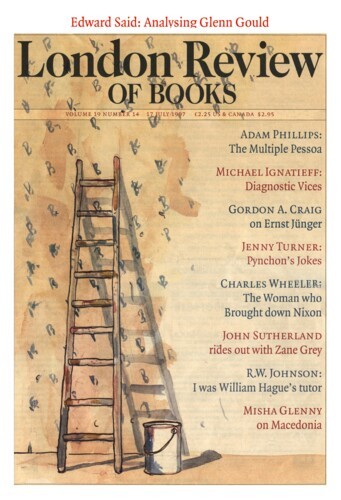Family Business
Fred Halliday, 17 July 1997
Among the less visible casualties of the recent Aitken libel case was the possibility of improving the quality of discussion about Saudi Arabia, an anomalous state with which, whatever a humanrights oriented Government may intend, Britain will continue to have close relations for many years. The standard negative images of the Kingdom were easy enough to find in the Aitken saga, and have been amply reinforced by coverage of the trial of two expatriate British nurses accused of murdering a colleague. The stereotypes of Saudi Arabia may be accurate, but they are hardly peculiar to that country. On the side of Aitken and his associates there is, of course, the opposite tendency, an oleaginous deference and a habit of euphemism, backed by widespread Saudi influence in the West’s media, and by an almost total information blackout on the country – Western journalists wait for months to get visas to enter Saudi Arabia.’




